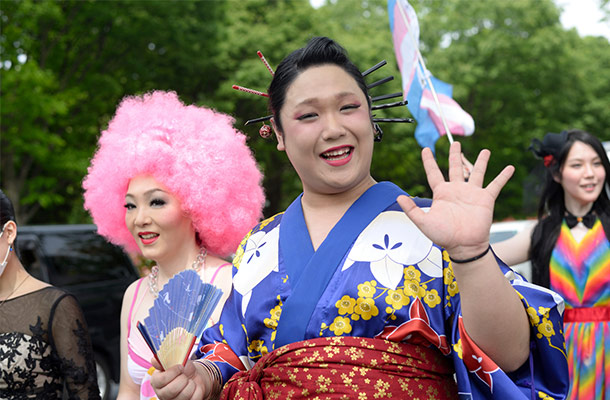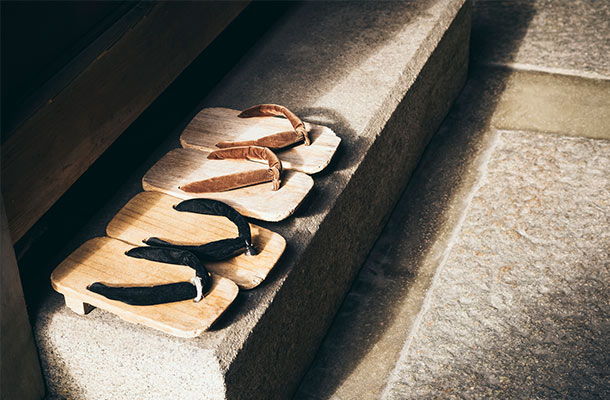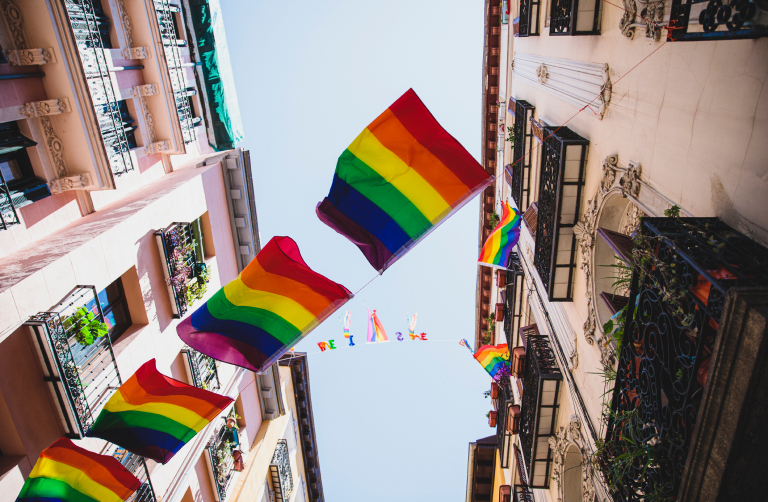Is Japan LGBTQ+-Friendly? An Essential Guide for Travelers
Japan’s LGBTQ+ scene can be complex for travelers to navigate. LGBTQ+ travel expert Ed Salvato shares his safety tips and shows us around Tokyo’s vibrant gayborhood.
 Photo © iStock/electravk
Photo © iStock/electravk
Is Japan a safe and welcoming destination for LGBTQ+ travelers? This guide delves into Japan’s LGBTQ+ scene and offers tips for exploring Tokyo’s gay nightlife.
- Homosexuality and LGBTQ+ rights in Japan
- Safety tips for LGBTQ+ travelers in Japan
- Exploring Tokyo’s gayborhood: where to go and what to expect
- LGBTQ+-friendly bars and clubs in Tokyo
- Japanese saunas and bathhouses
- Trip planning in Japan for LGBTQ+ travelers
Homosexuality and LGBTQ+ rights in Japan
Japanese society places more emphasis on group identity and values than personal expression. Sexuality – homo or hetero – is considered a private matter; It’s not flaunted in public displays of affection or discussion. Because of this, much of local gay life is not just hidden – it’s inaccessible. This is even more so for lesbians in Japan, who remain invisible.
That said, homosexuality in Japan is legal. There are protections for gays, lesbians and even transgender people enacted mostly on a local level, with an increasing number of cities and prefectures implementing anti-discrimination laws. However, there are no national laws protecting LGBTQ+ people, and same-sex marriage is not legal.
Safety tips for LGBTQ+ travelers in Japan
Japan is overall a very safe destination, and LGBTQ+ travelers are unlikely to experience violence or hostility. Nonetheless, it's best to avoid public displays of affection, whatever your orientation.
As openly gay travelers (who used the word husband, but didn’t hold hands in public), we felt completely comfortable and welcome. Japan is perfectly safe for queer visitors, but the scene is hard to find. Tokyo has hundreds of gay bars, but only a handful welcome foreigners.
Exploring Tokyo’s gayborhood: where to go and what to expect
Tokyo is subdivided into 23 wards or districts, which are large areas with their own city governments. Although you’re likely to visit several wards, you’ll probably spend most of your time in the main areas of the city, including the city’s busiest and most diverse ward – Shinjuku. This is where you’ll find the gay neighborhood and the most concentrated dose of queer travel Japan offers.
Northeast of Shinjuku station is Tokyo’s red-light district, with numerous bars, restaurants, smoky and noisy pachinko parlors, love motels and nightclubs. Near the seedy red-light district is the Ni-chome district, a cluster of older low-rise buildings with hundreds of establishments oriented towards gay men.
Despite the hundreds of gay bars in Tokyo, there are only a few options for non-Japanese-speaking customers. Our best advice would be to start at Aiiro Cafe. Make friends here with a local or two, and they can help you explore some of the bars that are lesser known.
Tokyo is a hard-working city, and the bar scene can be quiet on weeknights. Many locals clear out just before midnight to catch the last subway or train home. On weekends, the scene gets busy around 9 or 10, and can stay busy until 5am, when the trains start running again.
Planning a trip to Japan? Find out how travel insurance can cover lost or stolen baggage, sudden illness, or other travel mishaps.
LGBTQ+-friendly bars and clubs in Tokyo
Japanese travel providers are starting to recognize the gay travel market.
OutAsia Travel offers night tours of Shinjuku — basically a gay guide to bring you to two or three of the bars that welcome foreigners, and generally show you around.
Even with good directions, it’s not easy to find many places. Be sure to gaze upward for signs, as many bars aren’t on street level.
At most bars, you’ll pay a cover charge with your first drink, and the bar master, or Mamasan (owner/manager), will be your genial host. They’ll make introductions, help guys meet and mingle, and generally ensure everyone’s comfortable and having a good time.
Japanese saunas and bathhouses
Saunas can be even less welcoming of foreigners than bars, for all the same reasons, combined with a prejudicial fear of HIV as a foreigners’ disease. If saunas are your thing, you’ll need to know the etiquette.
Upon arrival, pop your shoes in a shoe locker, and change into a pair of slippers. Buy an admission ticket from the machine, and then take your shoe locker key and ticket to the front desk, where you’ll get a locker key, towel, bathrobe, and washcloth. If you walk to the front desk in your shoes, your ignorance of the local customs will very likely result in denied admission.
For the most extensive and up-to-date bar, club and sauna listings, the best reference is TravelGayAsia.com. A printout of their gay map is also very useful.
Trip planning in Japan for LGBTQ+ travelers
You’ll need some assistance beyond these recommendations to plan your own ideal Japanese adventure, including:
Guided group tours: There are many tours offered by mainstream companies, but we highly recommend the tour offered by our friends at Out Adventures.
Full-itinerary planning assistance: In our search for assistance and information, all gay roads in Tokyo led to Shintaro, the owner of OutAsia Travel. His insights and assistance in putting together a customized itinerary are highly recommended. Be sure to mention Ed Salvato when you contact him.
Individual planning resources: The Japan National Tourism Organization provides a variety of resources that will be helpful to prospective visitors. The most impressive of these is a directory of Systematized Goodwill Guide (SGG) Clubs. These volunteer guides, mostly retirees and housewives, provide free guide services to tourists in their native languages. Budget travelers will appreciate the JNTO’s Affordable Japan recommendations. For hotels and ryokans in smaller cities, we found Japanican.com useful.
Related articles
Simple and flexible travel insurance
You can buy at home or while traveling, and claim online from anywhere in the world. With 150+ adventure activities covered and 24/7 emergency assistance.
Get a quote

1 Comment
Did you mention anything about lgbtq+ parents because from what I've been reading about Japan and adoption wouldn't that be an interesting thing that would prevent some people from going to Japan